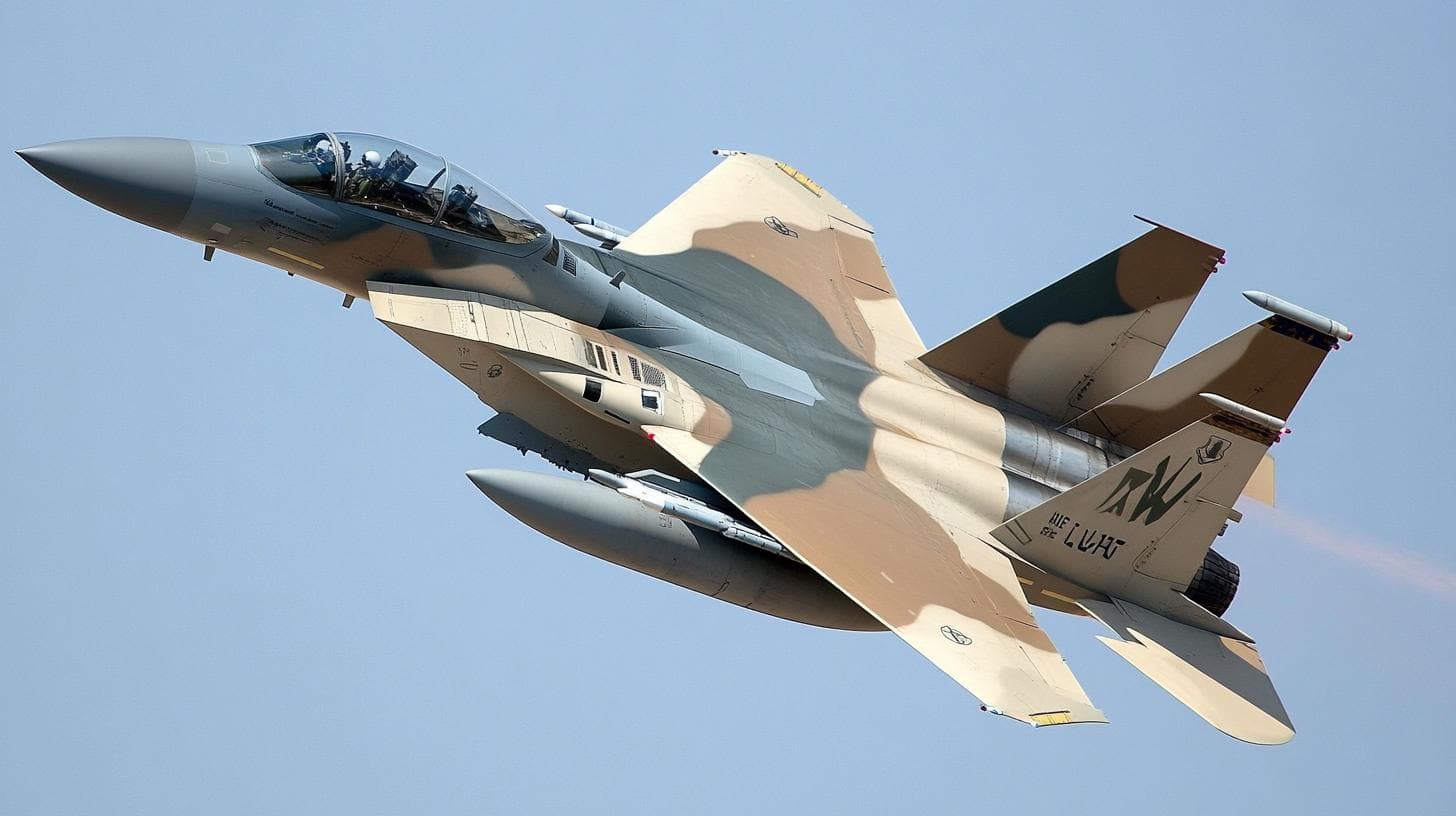In a strategic move to bolster its air defense, Israel has secured a significant contract to acquire advanced fighter jets from the United States. Amid ongoing tensions in the South Lebanon and Gaza Strip regions, the Israeli Ministry of Defense has announced a pivotal purchase: 25 next-generation F-15IA fighter jets from Boeing, amounting to $5.2 billion.
This deal, finalized on November 7, reflects strengthened defense ties between Israel and the U.S. The agreement not only covers the immediate acquisition but also includes an option for 25 more aircraft. The contract, part of a broader U.S. aid initiative agreed upon by the U.S. Administration and Congress earlier this year, aligns with Israel’s strategy to enhance its military capabilities.
Major General Eyal Zamir emphasized the strategic significance of this acquisition, highlighting its role in boosting Israel’s long-term military strength. The F-15IA jets, outfitted with cutting-edge weaponry and advanced Israeli technologies, are scheduled to arrive between 2031 and 2036. This addition will effectively double the Israeli Air Force’s Eagle fleet, facilitating the gradual decommissioning of older F-16 models.
Currently, Israel’s Air Force boasts 25 F-15I Ra’am variants, central to its operations. These sophisticated aircraft, renowned for their extended range and capacity to carry a diverse arsenal, remain a critical component in Israel’s defense strategy, especially in countering regional threats such as Iran.
As the delivery timeline progresses, this acquisition promises to enhance Israel’s air power, further cementing its strategic reach and defense readiness in a volatile region.
New Military Ventures: How Israel’s Fighter Jet Purchase Impacts the Region and Beyond
In an unprecedented enhancement of its military prowess, Israel has made headlines by procuring 25 next-generation F-15IA fighter jets from the United States, a transaction valued at $5.2 billion. Beyond the immediate strategic benefits for Israel, this deal casts ripples across the geopolitical landscape of the Middle East and even beyond, affecting various aspects of global diplomacy, regional security, and economic relations.
The Broader Impact on Lives, Communities, and Countries
Regional Security Dynamics: The introduction of such advanced technology into Israel’s arsenal undeniably shifts the balance of power in the Middle East. While Israel increases its aerial capabilities, neighboring countries may feel compelled to enhance their own defenses, potentially escalating regional arms races. The communities around South Lebanon and the Gaza Strip, already accustomed to intermittent conflict, may experience heightened tensions as military capabilities grow.
Economic Considerations: Boeing, as the supplier, stands to gain economically from this lucrative contract, bolstering its position in the defense sector and sustaining jobs linked to the production and support of these sophisticated jets. However, the wide-scale allocation of budget resources towards military spending sometimes leads to public scrutiny regarding spending priorities, particularly when socio-economic issues demand attention.
Interesting Facts and Controversies
One intriguing aspect of the F-15IA is the integration of Israeli technology, which represents a fusion of American engineering and Israeli innovation. This collaboration showcases a deep defense partnership but also stirs debates about technology sharing, especially with countries outside the U.S. allied framework.
Furthermore, controversies may emerge around the deal’s alignment with international arms agreements, as such purchases sometimes draw criticism under global arms control initiatives. Balancing regional security with international diplomacy remains a delicate act.
Advantages and Disadvantages
Advantages:
– Enhanced Defense Capabilities: Israel strengthens its ability to counter regional threats, reinforcing national security.
– Technological Advancement: The acquisition pushes the boundaries of military technology, fostering innovation through collaboration.
– Economic Boost for Defense sectors: Both Israeli and U.S. defense sectors experience economic growth due to increased production and associated activities.
Disadvantages:
– Potential Arms Race: Regional neighbors might respond with their own military upgrades, raising the stakes.
– Economic Trade-offs: Significant financial resources are directed toward defense rather than social programs or infrastructure.
– Political Tensions: The acquisition may inflame diplomatic tensions, particularly with countries skeptical of U.S.-Israel relations.
Key Questions and Answers
What does this mean for Israel’s geopolitical strategies?
The acquisition solidifies Israel’s defensive and offensive capabilities, potentially extending its strategic reach. It also reinforces its position as a dominant military force in the region, shaping its diplomatic leverage.
How might this affect ordinary citizens in the region?
Increased military expenditure and capabilities could either heighten security and stability or exacerbate tensions, affecting day-to-day life and economic conditions in volatile areas.
Further Exploration
For those intrigued by the nuances of international defense agreements and their cascading effects on global diplomacy, further reading and regular updates can be found at CNN or Al Jazeera.
As this significant military acquisition unfolds, its multidimensional impacts will remain a focal point for analysts, policymakers, and citizens worldwide, reshaping defense dialogues and diplomatic relations alike.







